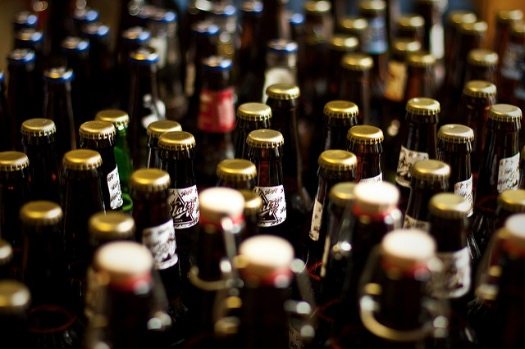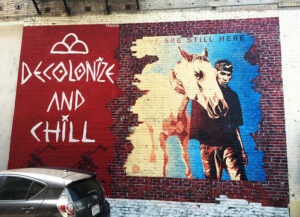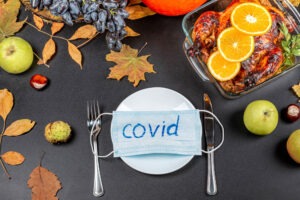
May 15, 2017; NBC News
When Penn State sophomore Mike Piazza’s family discovered he had died from injuries suffered at a fraternity party, hearts were broken. But when the details of his death started to spill out, they hit families who had been through the eerily familiar scenarios with an extra-hard gut punch.
Piazza was a shy engineering major who had followed his older brother to Penn State with a dream of one day making technologically advanced prosthetic limbs for children and veterans. However, everything went terribly wrong when he fell over 15 feet down a flight of stairs after a fraternity initiation in which the pledges were drinking large amounts of alcohol. Although found unconscious immediately afterward, he received no medical attention for hours. He would succumb to the injuries suffered from the fall.
“His story felt so familiar to us—a bright, young college student looking for friendship through a fraternity, overdosing on alcohol during a hazing event…just like Gordie almost 13 years ago,” reads a statement from the Gordie Center for Substance Abuse Prevention released in response to Tim’s death.
In 2014, Lynn “Gordie” Bailey Jr. died just three weeks after arriving on campus at the University of Colorado. The 18 year-old was a pledge for the Chi Psi fraternity and drank large amounts of alcohol along with other pledges. Appearing visibly intoxicated and unconscious, those who could have saved Gordie’s life instead left him to sleep it off for over 10 hours before it was discovered he had passed away from alcohol poisoning.
The Gordie Center, the nonprofit founded after his death, seeks to educate students about blood alcohol content through wallet cards, magnets, and posters about the signs of alcohol overdose and the dangers of hazing through a documentary. They also host a Gordie Day during National Hazing Prevention Week in September.
Author Andrew Lohse, who chronicled hazing at Dartmouth University in his 2014 memoir, Confessions of an Ivy League Frat Boy, blamed fraternities such as Beta Theta Pi at Penn State and Chi Psi for being ruled by “incredibly strong groupthink.” Lohse noted that it can be especially dangerous in fraternities, which he says are about submissions of power.
Sign up for our free newsletters
Subscribe to NPQ's newsletters to have our top stories delivered directly to your inbox.
By signing up, you agree to our privacy policy and terms of use, and to receive messages from NPQ and our partners.
“It’s about dominance, it’s about control and that fraternities are built on a secrecy that breeds peer pressure and frowns upon speaking out of turn,” Lohse mused. That, he said, needs to end within the entire Greek-letter community—and it needs to start with changing the fraternity psychology. Lohse commented that the Piazza case is one example where one person standing up is all it would have taken to change the outcome.
As these tragedies have played out on campuses across the country, it also has become clear that more attention needs to be put on passing and promoting the existence of Good Samaritan laws. In Pennsylvania, local law enforcement was saddened the students at Penn State weren’t more aware of the fact they would have overlooked the underage drinking in order to provide possibly life-saving medical intervention to Piazza. One fellow pledge even begged to take Piazza to the hospital; he was was told to mind his own business.
The Starkey family knows all too well that Good Samaritan laws can save lives. Carson Starkey was participating in a fraternity drinking ritual in while pledging a fraternity in December of 2008 when he became unresponsive. Sigma Alpha Epsilon members at California Poly Tech put Carson in a vehicle to take him to the hospital, but ultimately abandoned the trip for fear of getting themselves and their fraternity in trouble. Many students in these situations report a fear of getting help for a friend in trouble because they are terrified of losing their scholarship or positions on sports teams because they are themselves participating in underage drinking.
In Carson’s case, the group instead aborted the hospital trip, returned to the house, and left Carson on a mattress. Carson never woke up and died of alcohol poisoning. After his passing, the family formed the nonprofit Aware Awake Alive. They have worked diligently since Carson’s death to pass legislation allowing for limited immunity for those who call 911 when someone is in trouble. They have also worked to educate everyone on the signs of alcohol poisoning. The work is critically important, as 12 young people die every day in the United States from underage drinking, according to the federal Centers for Disease Control.
When it comes to the legal battle following the loss of Penn State’s Mike Piazza playing out in Pennsylvania, no one wins in these situations, no matter the outcome. Penn State’s image is damaged, and Beta Theta Pi will never exist again on Penn State’s campus. Those who were there and did nothing to save this man’s life will have to live with emotional and criminal fallout. Most profoundly, the light of Mike Piazza was extinguished forever, leaving an absence his family and friends will always feel.
The nonprofit sector continues to step up to produce thought leaders with specific plans of action. Those in charge of anyone’s safety—on school grounds, in places of worship, or in a work environment—would be savvy to take advantage of their resources and free assistance so that history does not have to repeat itself. Partner with these great organizations to send a powerful message and save lives. Without partnerships, lives like Gordie’s, Mike’s, and Carson’s will continue to be lost unnecessarily.—Carrie Collins-Fadell













